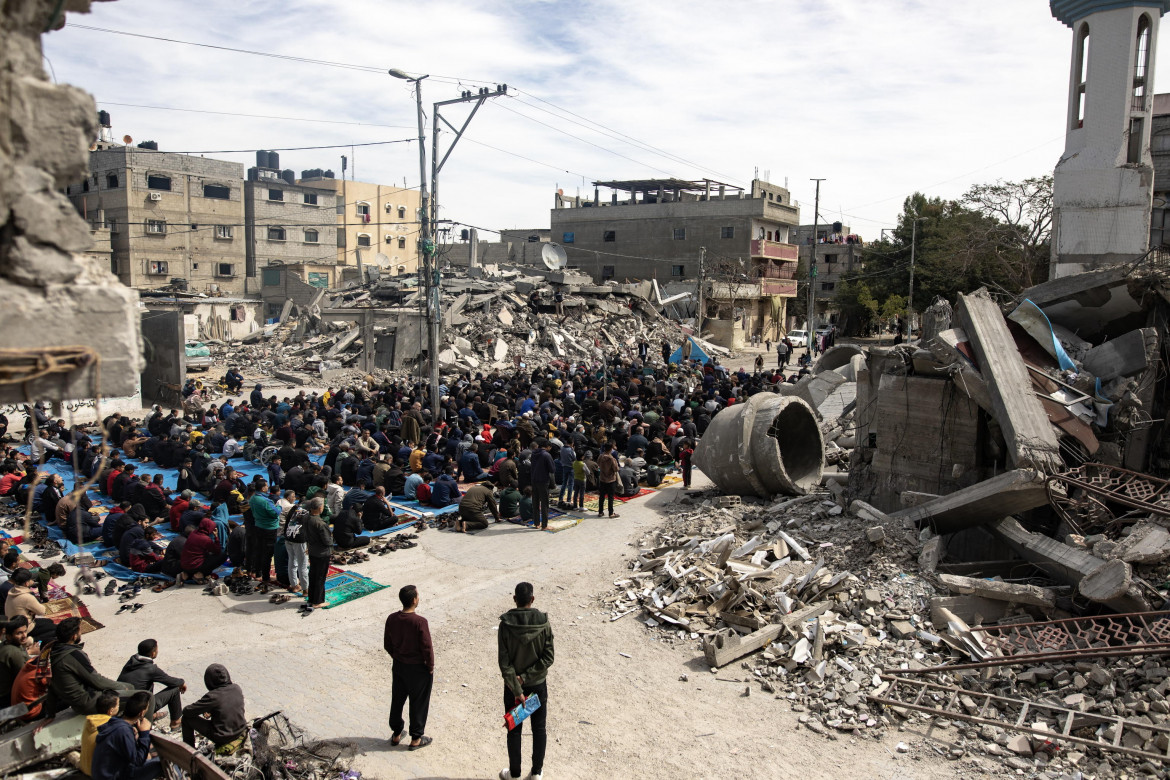Commentary
The intellectuals without wisdom in little Italy
As for the debate in Italy, what is most striking is the absolute inability of most of those who speak on this issue to realize how much the global public sphere has changed in the last 20 years.

“To a man of any intelligence, a stranger, a suppliant, is dear as a brother.” At the dawn of European culture, these words by Homer remind us that the protection of the stranger, and of the one who cries out for help, were seen as manifestations of divine justice. Those who are hungry should be fed, not killed, and the fact that so many are trying to speciously gloss over the double injustice done to hundreds of supplicants in Gaza is a symptom of the moral abyss into which we are plunging.
That there are so many intellectuals engaged front and center to blur distinctions – such as that between justice and revenge – that should be clear to anyone with “any intelligence” at all is something that is perhaps not surprising, but certainly leaves a bitter taste in one’s mouth.
Nearly five months have passed since the brutal Hamas attack on civilians, Israelis and not only: among the victims were the inhabitants of some kibbutzim, members of the security forces and also many young people who were taking part in a rave in the vicinity of the border with the Gaza Strip. According to recent figures, the number of people killed in the course of that carnage was at least 1,160, to which one must add the wounded and the hostages (some of whom have been freed, but the majority, if not dead, are still in the hands of their captors). In the same five months since that terrible October 7, more than 30,000 Palestinians have been killed, a good portion of whom were women and children.
It is unclear at present how much this massacre has weakened Hamas, but it seems indisputable that it hasn’t facilitated the release of the hostages. Nor is it clear what strategy is being pursued by the Israeli government, and this stonewalling, accompanied by the statements of the most extremist of the coalition’s members, is fueling fears that the expulsion of the inhabitants of the Gaza Strip could be followed by a new, massive and illegal annexation of territory.
Under these circumstances, and while a charge of genocide against the Palestinians is the object of hearings at the International Court of Justice in The Hague, there is a great need for people with “any intelligence.” Instead, what we’re reading and hearing is, in many cases, an attempt to justify the unjustifiable. There is dehumanization of the victims, and even accusations of anti-Semitism thrown at the Jews, including Israeli citizens, who have the moral rigor and courage to denounce the policies of the Netanyahu government.
As for the debate in Italy, what is most striking – beside the weakness of the arguments of those who try to defend the Israeli government’s massive and indiscriminate use of force – is the absolute inability of most of those who speak on this issue to realize how much the global public sphere has changed in the last 20 years.
At the time of the wars in Afghanistan and Iraq, most of the voices dominating the foreign policy debate were U.S. or European scholars or journalists. Of these, very few were from Middle Eastern countries, and in many cases they weren’t even experts in the area or familiar with the cultures, languages, and histories of the countries about which they were making authoritative judgments.
Today, the situation is very different.
Anyone who has access to the international press, follows the many all-news channels, listens to podcasts and reads a few books cannot help but be struck by the quantity and variety of voices coming from the Middle East, or from countries that are now described under the label of “Global South” (which actually overlap with most of the former European colonies). Kim Ghattas, Kenan Malik, Anita Anand, Mehdi Hasan, Nesrine Malik or Sathnam Sanghera are the first names that come to mind, but the list could be very long.
Thanks to these voices, and many others with similar backgrounds, we now have a much deeper and more balanced understanding of the history of relations between former colonial powers and the victims of colonialism, and also of its consequences for international politics.
Seen in the light of the global public sphere, the Italian debate appears provincial and flimsy. It’s all white, and mostly male, columnists and talk show hosts who are trying to justify or downplay the enormity of the ongoing massacre in Gaza, projecting the image of a small country that has lost touch with reality.
Originally published at https://ilmanifesto.it/gli-intellettuali-senza-senno-della-piccola-italia on 2024-03-03
